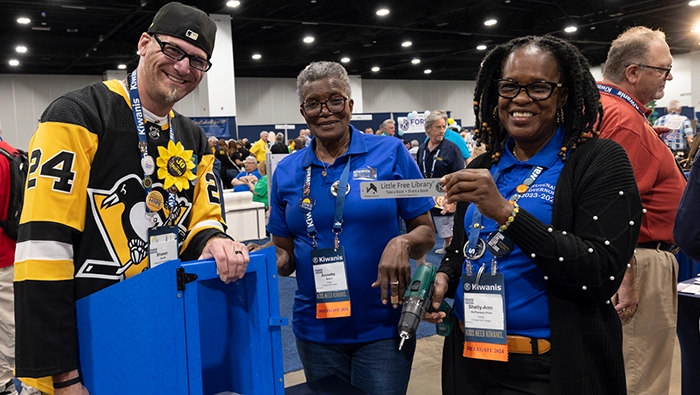
10 tips for effective presentations
These best practices can help make everyone feel included.
By Tony Knoderer
One of the best things about a Kiwanis club is the unifying purpose it gives to members — no matter how disparate they may be otherwise. Everyone is there to make a difference in kids’ lives.
But it’s also important to remember the group’s diversity when someone is addressing them all. For presentations to your club — or from your club to a group in the community — there are ways to make sure everyone feels included.
To account for a range of factors, from cultural backgrounds to audiovisual needs and more, use these 10 tips:
- Use font sizes 18-24 points or larger on slides.
- Choose common, easy-to-read fonts such as Arial and Georgia.
- Keep text on slides to a minimum (six to eight lines per slide and no more than 30 words).
- Write in sentence fragments, using keywords and bulleted lists.
- Stay away from harsh colors and busy backgrounds.
- Stick with simple animations or don’t use them at all. Audience members with learning disabilities, such as dyslexia, could have trouble reading words that move.
- Use inclusive language that shows respect for all people and cultures.
- Avoid sexist language and gender-biased comments.
- Know your audience — avoid acronyms when possible, and make sure any anecdotes or humor are appropriate for everyone.
- If you’re using software, turn on auto captions, if available.
Of course, one way to avoid communication mishaps is to let at least one other member preview the presentation materials, such as a script and slide deck, and provide feedback. Similarly, ask a guest speaker to create those materials ahead of time for review. (You might even consider having the speaker sign a basic agreement that outlines expectations.)
We offer more guidance — including the tips above — in our downloadable information sheet, “How to Host an Inclusive Presentation.” Download a copy and share it (or the webpage link) with fellow members!


